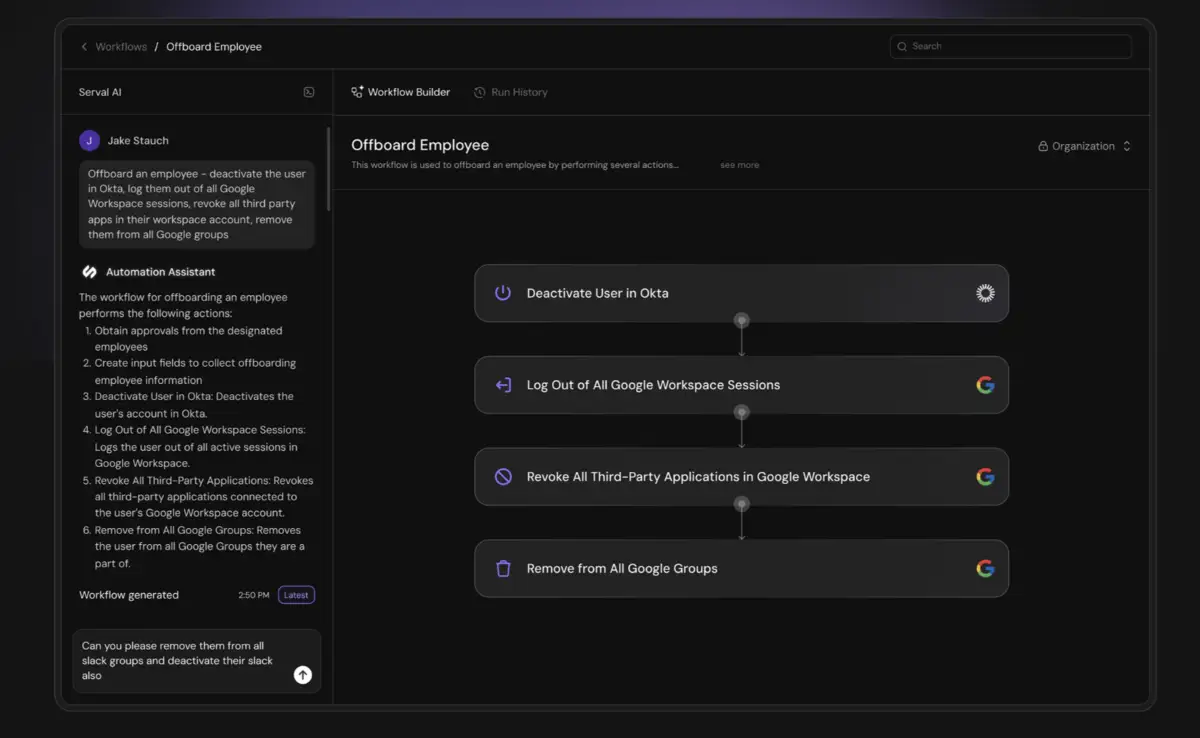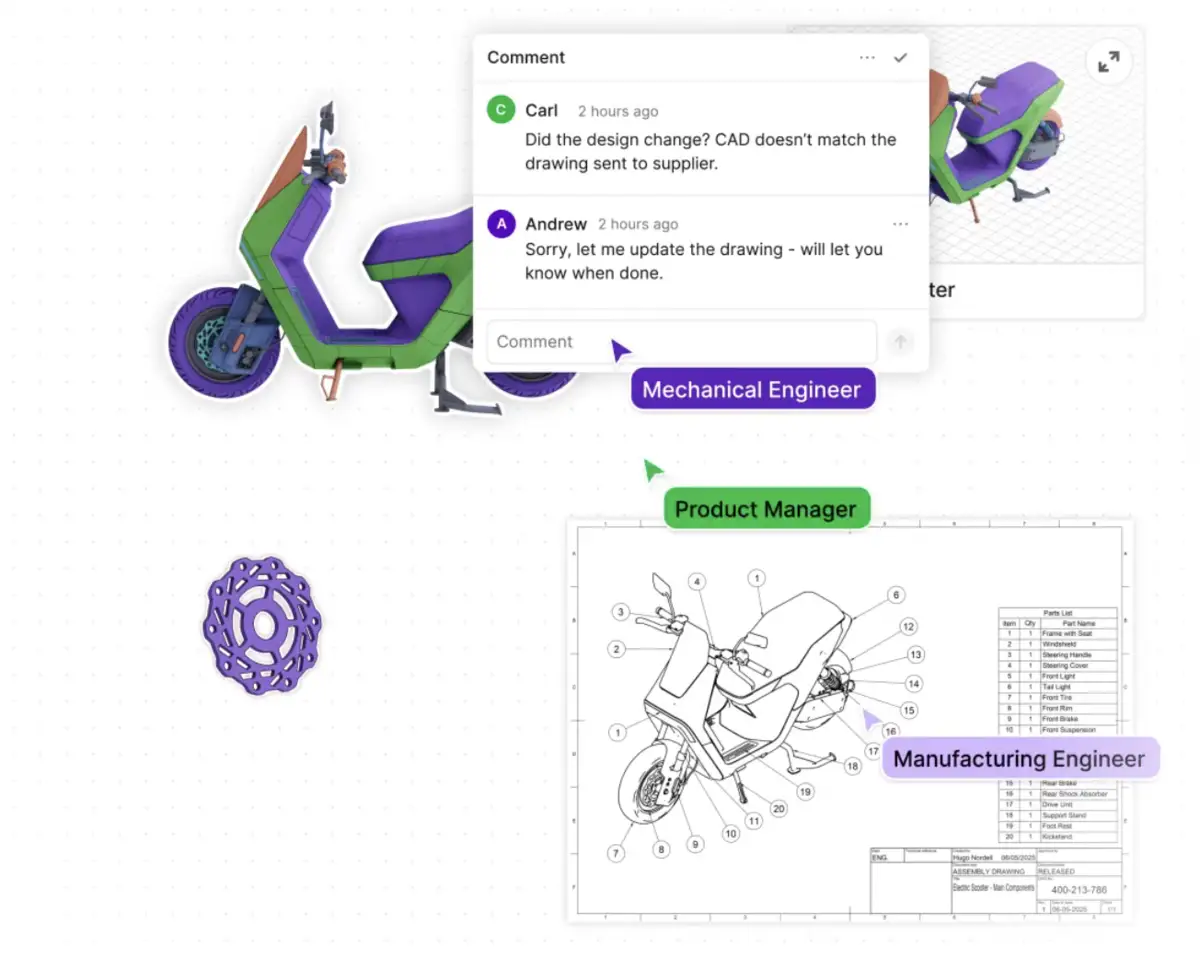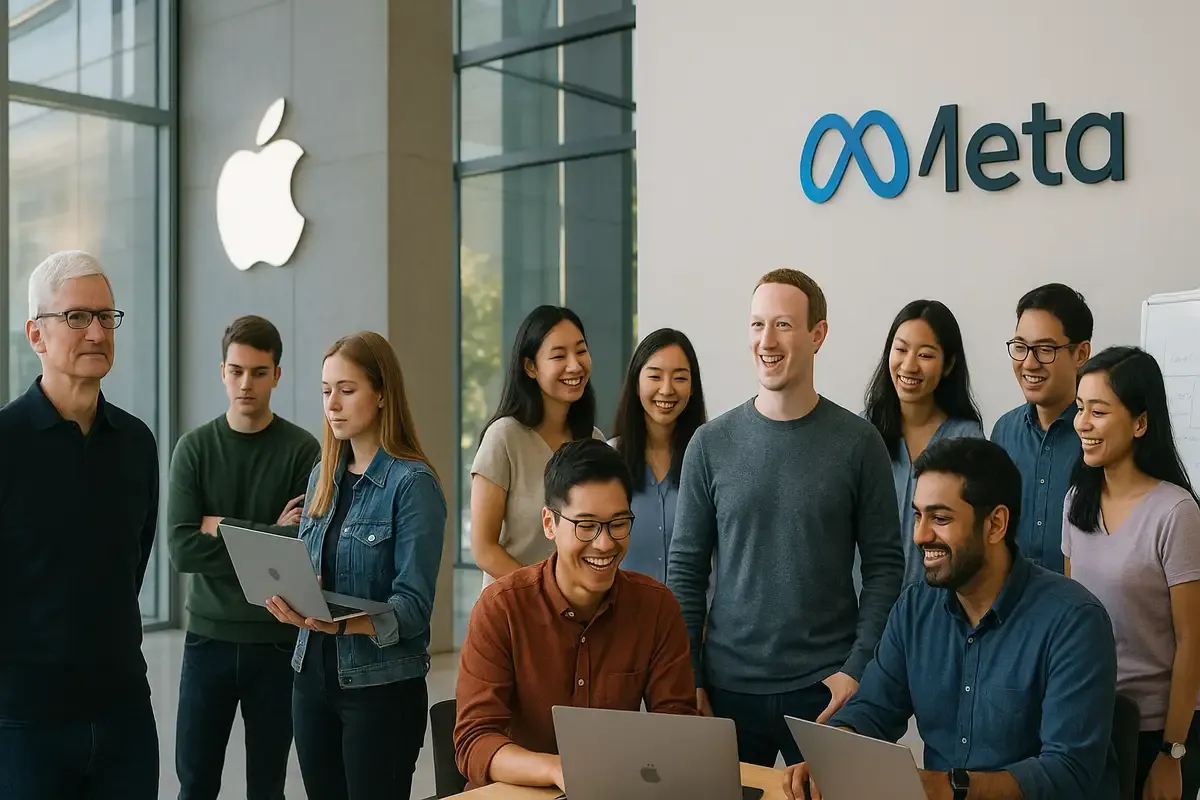Good Morning from San Francisco,
Apple promoted its Siri overhaul chief. Three weeks later, he joined Meta. That makes twelve senior AI researchers gone this year. The retention playbook clearly isn't working when researchers choose publication freedom over product deadlines and launch calendars.
Meanwhile, Anthropic just collapsed a five-month performance gap. Haiku 4.5 delivers what Sonnet 4 did in May—at one-third the cost and twice the speed. Frontier capabilities now commoditize faster than companies can deploy them. Multi-agent systems that couldn't scale at premium prices suddenly pencil out.
One company can't keep its talent. Another makes frontier models affordable. Same week, different lessons. Speed now determines the winners, not just raw capability.
More details inside.
Stay curious,
Marcus Schuler
Apple's Siri AI chief bolts to Meta after three-week tenure

Ke Yang left Apple for Meta three weeks after being promoted to lead Siri's ChatGPT-style overhaul—the twelfth senior AI researcher to jump ship this year.
Yang headed Apple's Answers, Knowledge and Information team, charged with making Siri synthesize web answers by March 2026. Benoit Dupin, who runs ML infrastructure, now owns the deadline alongside his existing job. That's not a lateral move. It's triage.
Product teams ship to quarters. Research labs ship breakthroughs.
Yang picked the mission over the milestone—same choice Ruoming Pang and ten other ex-Apple researchers made when they joined Meta's Superintelligence Labs.
From Apple's angle, losing a newly promoted leader signals execution turbulence.
From Meta's view, it's targeted acquisition of people who know Apple's constraints.
From researchers' perspective, it's clarity: publication freedom and research autonomy versus NDA restrictions and launch calendars. Apple's trying to retain frontier talent with product incentives. The scoreboard says it's not working.
Why this matters:
- AI researchers optimize for papers and breakthroughs; ship-date structures consistently lose them to research-first labs.
- Apple's chasing OpenAI-class capability at conglomerate speed while Meta courts the same talent at research tempo.


AI Image of the Day

Prompt:
A dramatic close-up artistic painting of a face
with a stark black and white color scheme, featuring vibrant red lips as the focal point. The lips are painted in bold, glossy red against the monochromatic background, creating a striking contrast. The right side of the face is painted in white, while the left side transitions into deep black. The eye is rendered in realistic detail with a warm brown iris and defined eyelashes, positioned in the upper right corner of the composition. The nose is painted in dark gray tones. The painting style is expressive with visible brushstrokes and texture, particularly in the black areas. The background features abstract black and white paint splatters and brush marks. The signature "SC" appears in red at the bottom right corner. The overall composition creates a dramatic noir-style aesthetic with the bold red lips serving as a pop of color against the predominantly monochromatic palette.
Anthropic ships frontier-class coding at commodity prices

Haiku 4.5 delivers May's Sonnet 4 performance at $1/$5 per million tokens—one-third Sonnet 4.5's cost and twice the speed.
Anthropic released it yesterday across Claude.ai, its API, Amazon Bedrock, and Google Cloud. It's now the default for free-tier users.
The economics unlock what was technically possible but prohibitively expensive: multi-agent systems where Sonnet 4.5 plans while parallel Haiku 4.5 instances execute subtasks. Haiku scored 73.3% on SWE-bench Verified—matching Sonnet 4, near GPT-5 and Gemini 2.5. It's also the first small Anthropic model with hybrid reasoning and extended thinking mode.
Frontier capabilities now commoditize in five months, not years. The gap between "best available" and "affordable for production" is collapsing faster than deployment cycles.
From Anthropic's angle: a portfolio play that sells both models without forcing a binary choice. Developers see workflows that couldn't scale at Sonnet 4 pricing suddenly viable. Competitors—OpenAI, Google—chase the same curve. Right now, compression is winning the race.
Why this matters:
- Frontier-to-commodity window shrinks to five months, eroding performance-based moats and rewarding deployment speed over raw capability.
- Multi-agent economics cross production threshold, making parallel execution viable at scale for real-time, high-volume applications.

🧰 AI Toolbox
How to Automate IT Help Desk and Access Management with AI Agents

Serval is a unified help desk and access management platform with built-in AI agents. It automates help desk requests, access provisioning, and workflow creation using natural language—no coding required.
Tutorial:
- Go to the Serval website
- Describe your workflow in natural language
- Serval automatically builds and deploys the workflow
- Let AI agents handle routine help desk tickets and access requests
- Use AI Copilot to resolve escalated issues with suggested solutions
- Manage all access requests and policies in one unified platform
- Integrate seamlessly with your existing ticketing systems
AI & Tech News
ChatGPT will generate erotica for verified adults
OpenAI will allow erotica on ChatGPT for verified adults, CEO Sam Altman said Tuesday, reversing his August claim that he was "proud" of resisting engagement-boosting features like "sex bot avatars." The flip lands months after the FTC launched a child-safety probe and a family blamed ChatGPT for their teen's suicide, betting age checks can wall off adult content from the minors it just promised to protect.
White House AI czar attacks Anthropic over California bill support
White House AI czar David Sacks accused Anthropic of "regulatory capture strategy based on fear-mongering" after the company stood alone among AI peers supporting California's transparency and whistleblower law, which passed September 29. The attack creates what co-founder Jack Clark calls a "perplexing" dilemma: investors may now hesitate to back the one major AI company skipping Trump photo ops, cementing Anthropic as the "liberal bogeyman" while OpenAI, Microsoft, and Apple executives bend the knee.
Ten AI startups gain $1 trillion in twelve months
Ten lossmaking AI startups including OpenAI, Anthropic and xAI gained close to $1 trillion in valuation over the past year as VCs poured $161 billion into the sector—two-thirds of total spending—with companies carrying $5 million in revenue seeking $500 million valuations at 100x multiples that dwarf 2021's peak. The bubble now threads through public markets: Nvidia, AMD, Broadcom and Oracle gained hundreds of billions after striking compute deals with OpenAI, creating a contagion path where questions about the lossmaking startup's ability to pay could unwind those gains and drag indexes down.
Chinese hackers spent year inside F5, stole security code
Chinese state-backed hackers spent at least 12 months inside F5 Inc.'s network, stealing source code from the cybersecurity firm's BIG-IP suite used by Fortune 500 companies and government agencies, plus details about software flaws that could exploit customer systems. The stolen blueprints turn F5's security products into attack vectors, letting hackers potentially infiltrate the thousands of corporate and federal networks that depend on BIG-IP for protection—a single vendor breach that makes every customer vulnerable.
Two stealth humanoid startups land $335 million combined
Rhoda AI ($230 million raised, near-unicorn) and Genesis AI ($105 million seed) are building humanoid robots in Palo Alto—Rhoda targeting industrial heavy lifting, Genesis focusing on software models for wheeled bots cheaper than Tesla's Optimus. The bets land as investors pump billions into a hardware category that Root Ventures warns jumped "from cool, promising research to $100 million seed rounds" without proving factory-floor economics, creating a capital cushion that may evaporate before the robots can walk.
AI-Powered Pain Assessment Tools Transform Healthcare
Healthcare providers are increasingly adopting AI-powered tools like PainChek, an innovative app that analyzes tiny facial muscle movements to assess patients' pain levels more accurately than traditional methods. The technology is proving particularly valuable in dementia care facilities, where patients often cannot verbally communicate their pain, helping nursing staff provide better targeted care and pain management.
Tekscend Photomask Corp. Surges 13% in Tokyo Stock Exchange Debut
Japanese semiconductor materials company Tekscend Photomask Corp. saw its shares jump 13% during its first trading day on the Tokyo Stock Exchange following a successful $1 billion initial public offering. The company, which specializes in manufacturing photomasks used to transfer microscopic circuits onto semiconductor wafers, completed Japan's second-largest IPO of the year.
UK Seeks to Confiscate $6.8 Billion in Bitcoin Tied to Chinese Fraud
UK prosecutors are pursuing the confiscation of approximately $6.8 billion worth of Bitcoin connected to a massive fraud case originating in China in 2017. The legal action aims to return the seized cryptocurrency assets to Chinese investors who were victims of the investment scheme, following criminal trials that uncovered the extensive fraud operation.
EU Plans to Triple AI Data Centers Amid Water Shortage Warnings
The European Union's ambitious plan to triple its artificial intelligence data center capacity within the next five to seven years is raising significant environmental alarms over water scarcity issues. The expansion strategy poses particular challenges for water-stressed regions in Southern Europe, where the competing demands between technological infrastructure and limited water resources could create serious sustainability conflicts.
AI Recruitment Startup Jack & Jill Secures $20M in Seed Funding
London-based Jack & Jill, a conversational AI startup that develops automated agents to streamline hiring processes, has raised $20 million in seed funding led by venture capital firm Creandum. The company, founded just six months ago, plans to use the funding to expand its operations into European and US markets as it scales its AI-powered recruitment technology.
Indian Streaming Startup Kuku Secures $85M Series C Funding Round
Indian storytelling platform Kuku has successfully raised $85 million in Series C funding led by Granite, achieving a valuation of $500 million as the company continues to expand its audio content and vertical drama offerings. The Google-backed startup has demonstrated strong market traction with over 10 million paid subscribers, positioning itself as a significant player in India's competitive mobile content landscape.
🚀 AI Profiles: The Companies Defining Tomorrow

Encube
Encube brings AI-powered manufacturability checks straight into hardware design reviews. The Stockholm startup wants to stop factories from discovering expensive problems after it's too late to fix them cheaply.
The Founders
Hugo Nordell and Johnny Bigert launched Encube in 2023. Nordell spent years watching Sandvik and Aker Solutions discover manufacturing nightmares late in the game. Bigert built systems at Microsoft/Skype and Klarna. Both thought hardware teams needed something better than screenshot ping-pong and surprise rework bills. They're based in Stockholm and came out of stealth in October 2025.
The Product
It's a browser workspace where engineers, procurement, and manufacturing look at the same 3D models while AI flags production risks in real time. No app downloads. No version confusion. The platform runs fast process simulations—think 3-axis and 5-axis CNC—in seconds, not hours. Teams get change alerts, @mentions, detailed permissions, and natural-language search. The pitch: catch costly mistakes during design reviews, not after tooling orders ship.
The Competition
Onshape and Fusion 360 own collaborative CAD. aPriori runs cost analysis. VERICUT simulates NC code. Encube's wedge? It sits upstream, inside the design conversation, before CAM programming starts. Traditional tools validate after decisions lock. Encube wants to be the place where teams make the call.
Financing
$23M from Kinnevik, Promus Ventures, and Inventure just landed. No valuation disclosed. Early pilots include Volvo Group, Scania, and Beyond Gravity—decent logos for a stealth exit.
The Future ⭐⭐⭐⭐
Europe's re-industrializing. Talent's thin. Boards hate late surprises. If Encube becomes the room where design, cost, and buildability collide—and people actually use it daily—it'll print. The risk? CAD and PLM vendors already own the calendar. Encube needs to thread that gap without asking teams to rip out what works.









